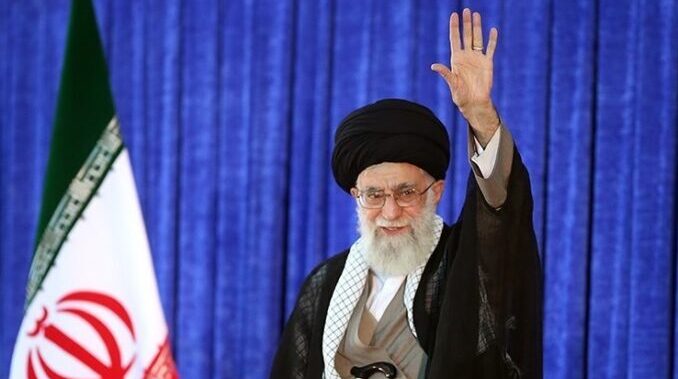
Iran issued an ultimatum on Sunday. Its supreme leader, Ayatollah Khamenei, tweeted to the world:
President Biden had a succinct response, in a CBS News interview aired Sunday: No.
To be clear, Iran remains fully adversarial to the United States, as indicated by the associated tweet from Khamenei:
President Biden recognizes this, and even President Trump – who showed great trust and affection for many of the world’s authoritarian and expansionist regimes – seemed to recognize it on occasion. That issue is also tied to the violent aggression of Iran and their desire for a world governed by Islamism.
Trump was unique in American Presidents in that he viewed himself as the defining figure of the United States; if things were good for him, they were good for the country. It was a singularly sociopathic view of international politics, and resulted in dramatic shifts away from traditional goals.
For Obama, Bush, Clinton, Bush, Reagan and Carter alike the question was how to get Iran to treat its people well and join the world community as a free trading partner. The preferred approaches varied dramatically, ranging broadly from threats and physical violence to friendliness and coercive payments. The question shifted under Trump to ask how Iran could benefit him. Under Biden it returns to attempting to bring Iran into a peaceful world community.
Thankfully, at least initially, Biden is not granting Iran’s demands. This is an excellent development. The Iranian demands include full easing of economic sanctions, which goes beyond even the very favorable terms to which Obama agreed, and they would be required before Iran even begins negotiating for a return toward limits on their nuclear program.
It’s important to recognize, as well, that Iran was widely believed by the international community to not be living up to the requirements of the nuclear deal in the first place. They were suspected of moving toward enrichment of uranium in direct contravention of the rules of the agreement, and the inspection guidelines were such that Iran was able to prevent all but the most broad oversight of their programs.
Much like North Korea, President Trump walked into a no-win situation with Iran. Much like North Korea, he made a bad situation worse.
In Iran’s case, we had an arrangement in place. We had negotiated it in secret under President Obama, likely because the terms were so advantageous to Iran that it would have had difficulty getting Congressional support. It freed about $50 billion in Iranian money which had been held by various international agencies and allowed the nation to engage openly in oil trading in exchange for promises of good behavior and the aforementioned limited oversight.
There were immediate positive effects from the nuclear deal. First, it eased the purchase of oil for European countries which were in need of it; while many EU nations have been pressing for development of renewable energy sources, fossil fuels remain the primary energy source for all of them and the comparatively pure oil from Iran’s fields is cheaper to refine into gasoline. This had the advantage of generating an immediate diplomatic boost for the US with EU nations. Second, while Iran reportedly continued to press for development of their nuclear weapons program, they did so less openly, likely extending the amount of time before they would successfully create nuclear missiles.
The negative effects of that money being freed were also profound. It eased internal pressures on the Islamist government which were threatening to trigger revolution, and it simultaneously provided cash for Iran to fund paramilitary actions against American soldiers, our allies, and our interests in the Middle East.
Once the money was freed, however, the damage was done. The held cash and the economic sanctions were the two sticks the United States wielded over Iran, and both of those sticks were gone. (While the US could – and did – resume sanctions, without the participation of the international community those sanctions were effectively worthless. Oil and cash both being fungible quantities, Iran could simply trade with other nations without worrying about American restrictions.)
Walking away from the Iranian deal offered few benefits to the United States, but it allowed Trump to position himself as if he were somehow being tough with Iran. That played well to many Americans, and simultaneously boosted the perceived value of American ties for Saudi Prince bin Salman (who was a key regional ally of Trump despite arranging for the vivisection of a reporter under direct American protection.) The benefits which had been purchased at high cost by Obama were squandered for little save a chance to publicly bluster.
This is the situation which has been handed to President Biden. The positives of rejoining the Iranian deal exist but they are few. We gain just as much diplomatic credibility with the EU and other nations by indicating we are willing to talk seriously as we do by actually coming to terms. International nuclear observers have indicated that Iran is violating their side of the deal (which, in theory, they continue to share with the EU) and that they have done so since shortly after the deal was signed.
There should be little pressure on President Biden to rejoin the Iranian nuclear deal. At this point, with Iran acting freely, there is scant incentive to provide them actual gains (small economic gains and significant gains of diplomatic influence) in exchange for a public relations statement of cooperation. Rejecting the demands is the correct move.
